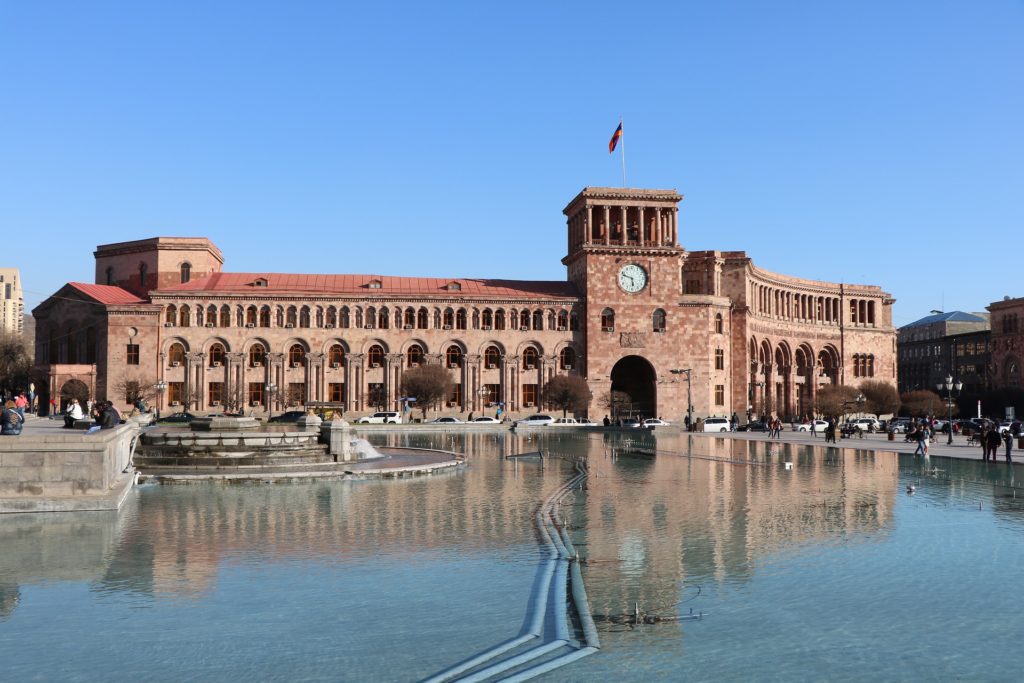YEREVAN
The International Monetary Fund (IMF) said it expected Armenia’s economy to expand by around 1 percent in 2021 followed by 3.5 percent growth next year, although the recovery will be protracted due to the impact of the coronavirus pandemic and war over Nagorno-Karabakh.
Armenia has been demonstrating rapid growth in recent years, but the ex-Soviet country’s economy suffered from restrictions aimed at containing the COVID-19 pandemic and a six-week conflict between Azerbaijan and ethnic Armenian forces over the Nagorno-Karabakh region and surrounding territories.
Armenia accepted a Russian-brokered ceasefire to end the bloody conflict which secured territorial gains for Azerbaijan. The country’s economy contracted by 7.6 percent in 2020, reflecting the decline in services and trade.
“The recovery is likely to be protracted. While there is uncertainty about the pace of the recovery, our conservative outlook expects growth of around 1 percent in 2021 and 3.5 percent in 2022,” the IMF said in a statement.
The Fund said that economic recovery should be supported by “immediate policy priorities, including fast-tracking large-scale vaccinations, timely implementing planned public investment and protecting vulnerable households.”
The government projects economic growth of 3.2 percent in 2021, although Finance Minister Atom Janjughazyan said in December that achieving that level of economic growth “would require hard work.”
The current account deficit is predicted to widen to around 5 percent of gross domestic product (GDP) in 2021 as activity and imports gradually recover, while reserves are expected to remain adequate, supported by the Eurobond issuance earlier this year.
Armenia issued Eurobonds worth $750 million in February to manage its increased public debt and budget deficit.
The country’s fiscal deficit widened to around 5.5 percent of GDP in 2020, reflecting the impact of government support to vulnerable firms and households and higher health spending, with government debt ending 2020 at about 63.5 percent of GDP.
The current account deficit narrowed to 3.1 percent of GDP in 2020.
“Near-term upside risks come from a faster than expected vaccination roll-out, while additional waves of infection or heightened global financial volatility or trade tensions would delay the recovery and add to external pressures,” the IMF said.
The Fund projects inflation to peak in the first half of 2021 before declining to around 4 percent by year-end as the temporary impact of imported food inflation and the passthrough from recent depreciation dissipate.
The government forecasts annual inflation to be in a range of 2.5 to 5.5 percent in 2021. In March, annual inflation accelerated to 5.8 percent amid recent global food inflation and depreciation of the dram currency.
The Fund said that maintaining strong policies and advancing fiscal and structural reforms in the months ahead will be critical to strengthen confidence and underpin a durable and inclusive recovery.
“Structural reforms to further strengthen governance, improve the business environment and access to financing, and increase economic inclusion need to be accelerated to achieve faster, inclusive, and private-led growth in Armenia,” the IMF said.

